Reposted by: Christopher Blair, Cas Mudde, Jan W. Mueller , and 22 more Christopher Blair, Cas Mudde, Jan W. Mueller, Norbert Schwarz, Brendan Nyhan, Tom Clark, Scott L. Greer, Robert W. Wallace, Rosemary A. Joyce, Marina Jirotka, Eric Goldman, Christian E. Weller, Daniel W. Drezner, Melanie C. Green, Lesley Bartlett, Stacy D. VanDeveer, Michael D. McDonald, Jason Lyall, Colm O’Cinneíde, Blair Fix, Tim Fish, Claire Sécail, Daxton R. Stewart, Olivier Mannoni, James M. Thomas
The FBI and Justice officials closed the investigation, which a Justice Department appointee had called a “deep state” probe in early 2025.
www.msnbc.com/msnbc/news/t...

Clearly I was not sufficiently pessimistic.
Reposted by: Christopher Blair
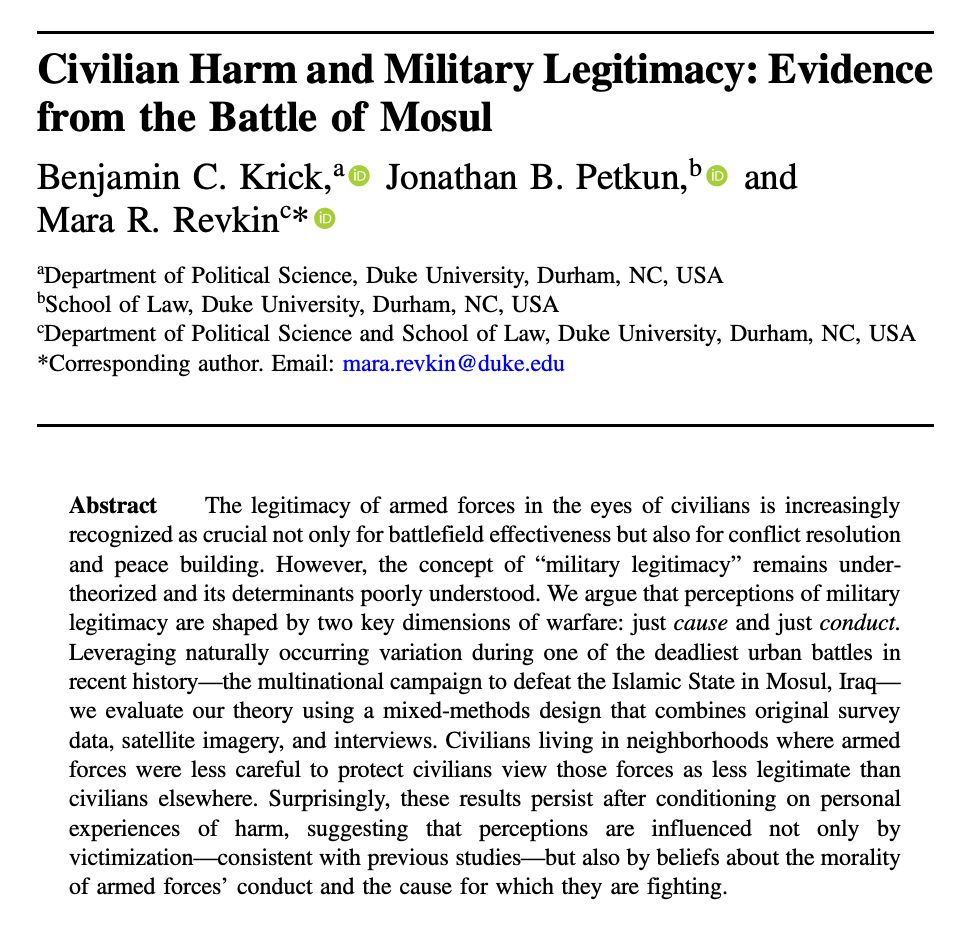
by Michael A. Clemens — Reposted by: Christopher Blair, Joanna Bryson, Steven Heydemann , and 14 more Christopher Blair, Joanna Bryson, Steven Heydemann, Matthew Bunn, David Lazer, Stefan Reis, Karen R. Lips, Caroline Krafft, Markus Jäntti, Rex Brynen, Terence Wood, Naazneen H. Barma, Jay Shambaugh, Gary Marcus, Stephen Pimpare, Matthew S. Erie, Clark Gray
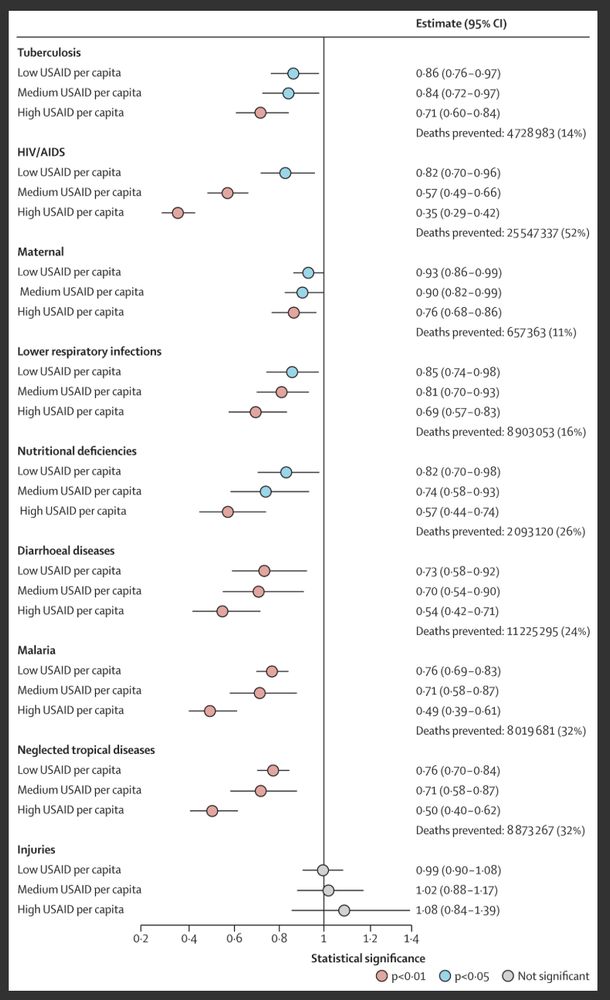
What sets 'good' description apart from 'mere' description?
We develop a framework for evaluating descriptive research, whether we are doing it as scholars or assessing it as readers.
Two main contributions...
🔗📄 tinyurl.com/gooddesc
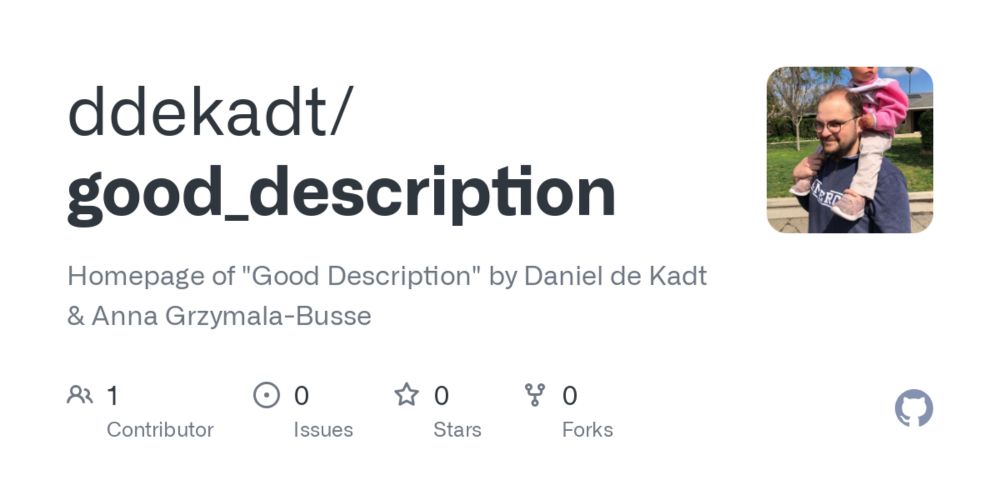
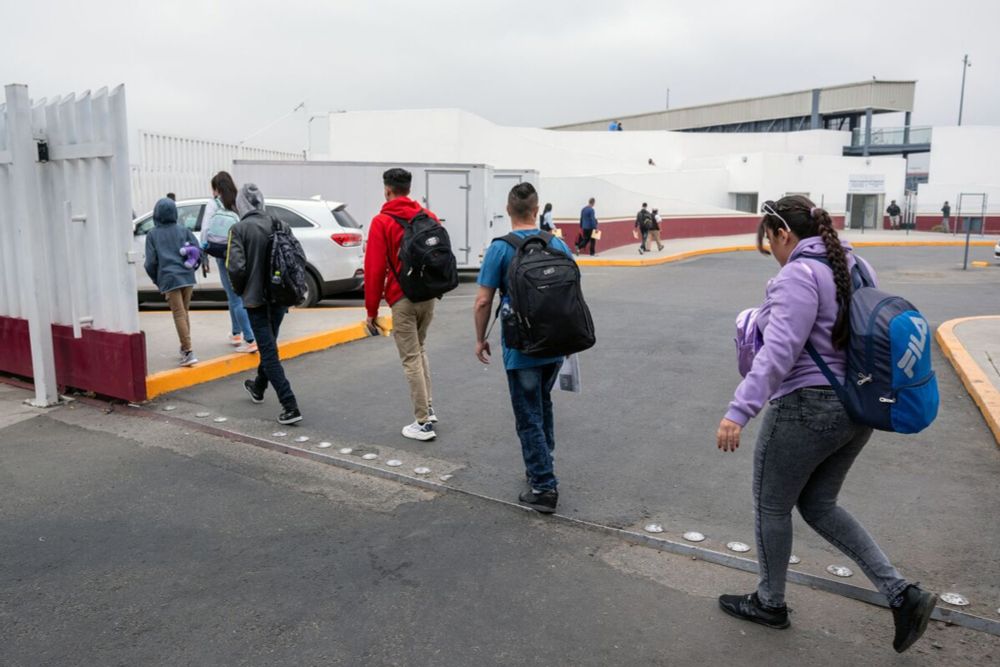
My quote in the article touches on this - paying people to return home is not likely to keep them from attempting to migrate again
And even if the admin doesn’t care about conflict in origin countries, we should!
www.bloomberg.com/news/article...
Reposted by: Christopher Blair
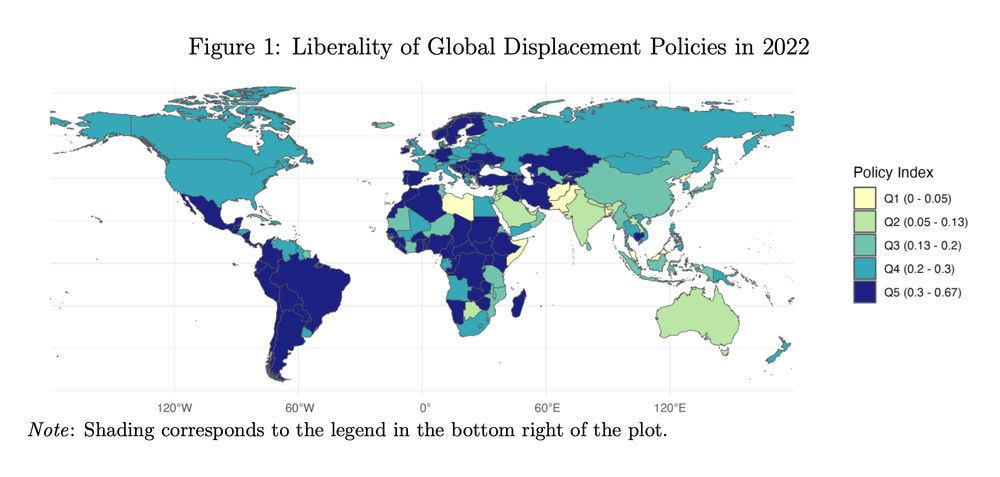
Reposted by: Christopher Blair, Andreas De Block
BUKELE: How can I smuggle a terrorist into the United States? Of course I'm not going to do it. The question is preposterous
TRUMP: These are sick people
Reposted by: Christopher Blair

Reposted by: Christopher Blair
Our findings suggest growing pressure on Iran could result in another wave of mass Afghan repatriation, further destabilizing Afghanistan.

Several European countries are contemplating forcibly repatriating Syrian refugees. Achieving Syrian returns by restricting hosting conditions for Syrian refugees may exacerbate instability in Syrian areas that receive returnees from Europe.
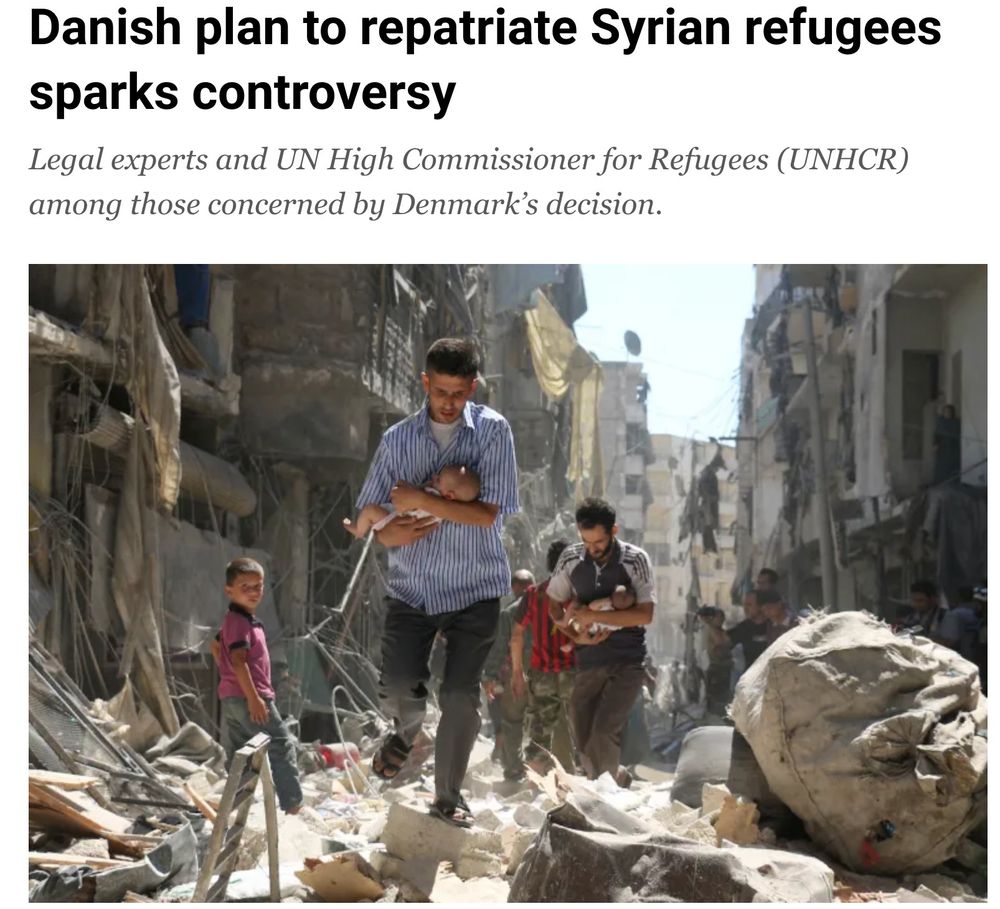
For theory, we think the framework we develop is quite useful. Consequences of repatriation are intimately linked with the contexts of repatriation.
Returns resulting from worsening conditions in a host country are an important, overlooked phenomenon.
Another possibility is that strong local institutions in returnee-receiving areas mitigated conflict.
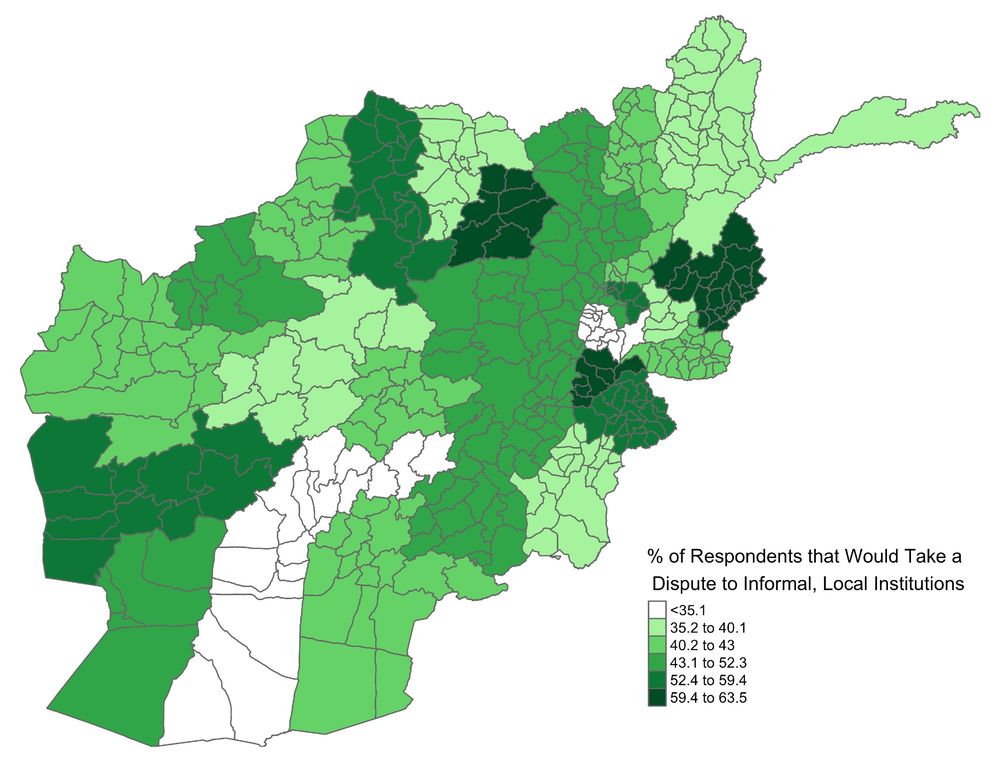
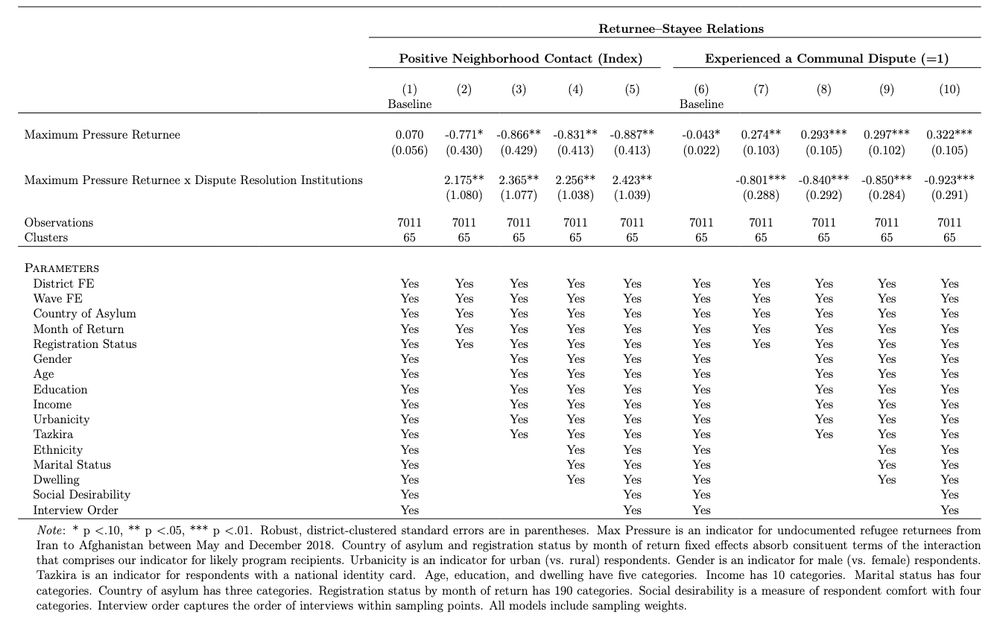
Much prior evidence suggests mass repatriation increases communal disputes and local feuds.
To our surprise, we find no evidence that return was associated with ⬆️ communal conflict in this setting. If anything, returnees reported better relations.
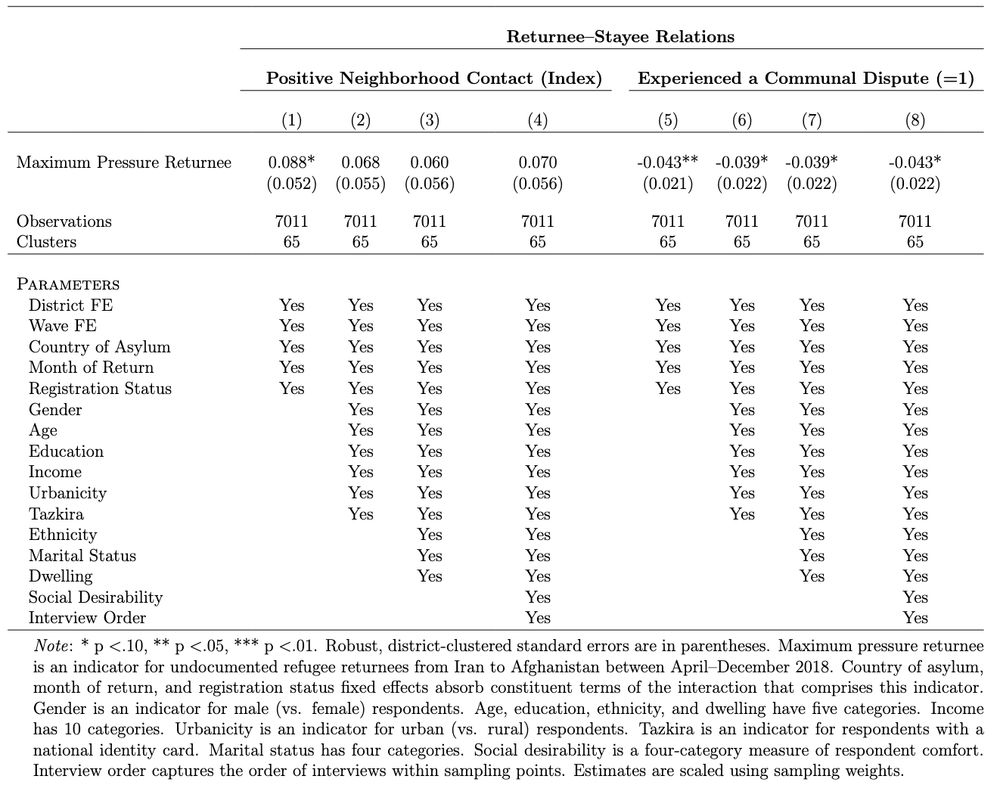
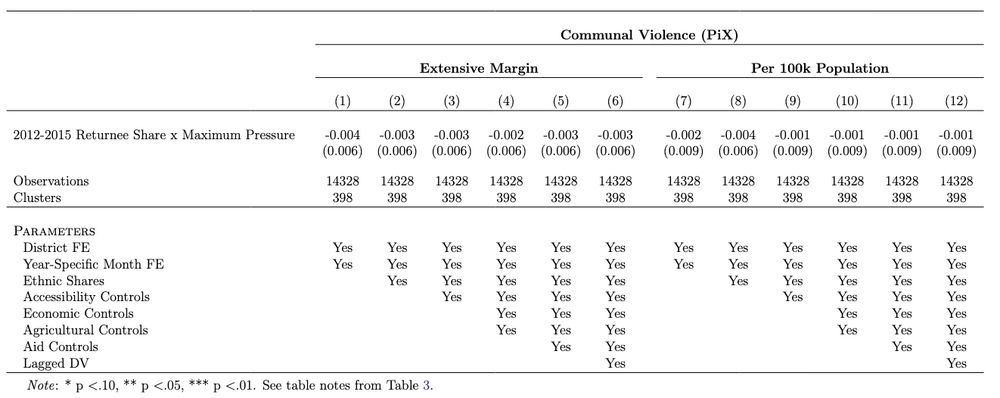
Violence during the Max Pressure period ⬆️ disproportionately in returnee-receiving communities linked to Iran-backed Taliban cells
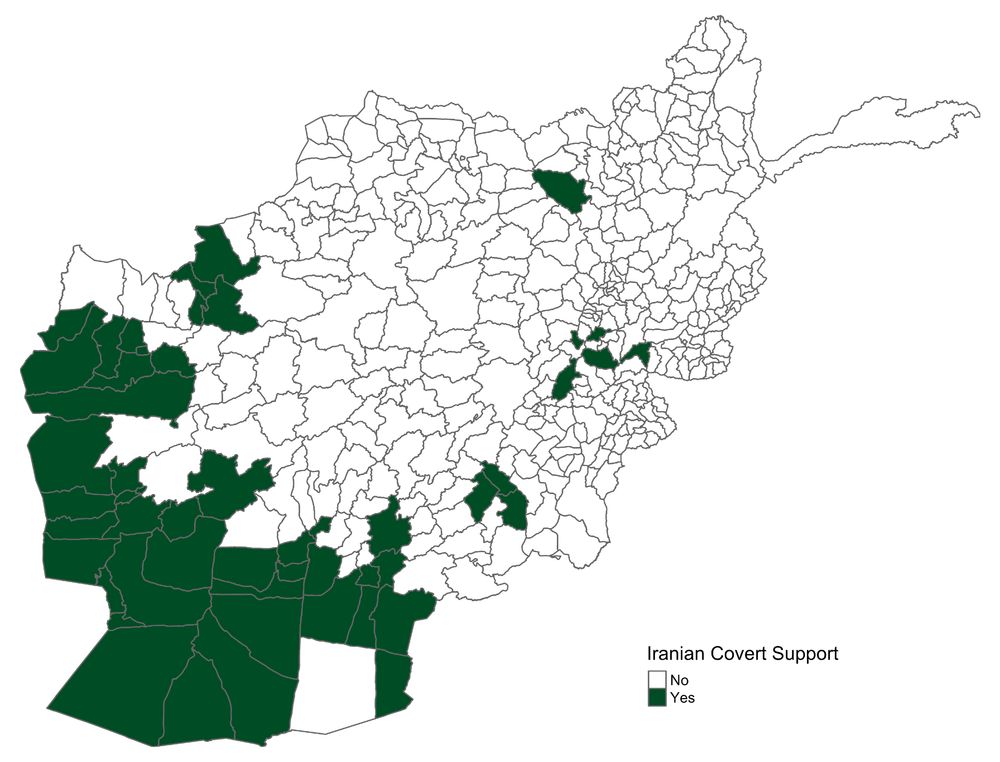
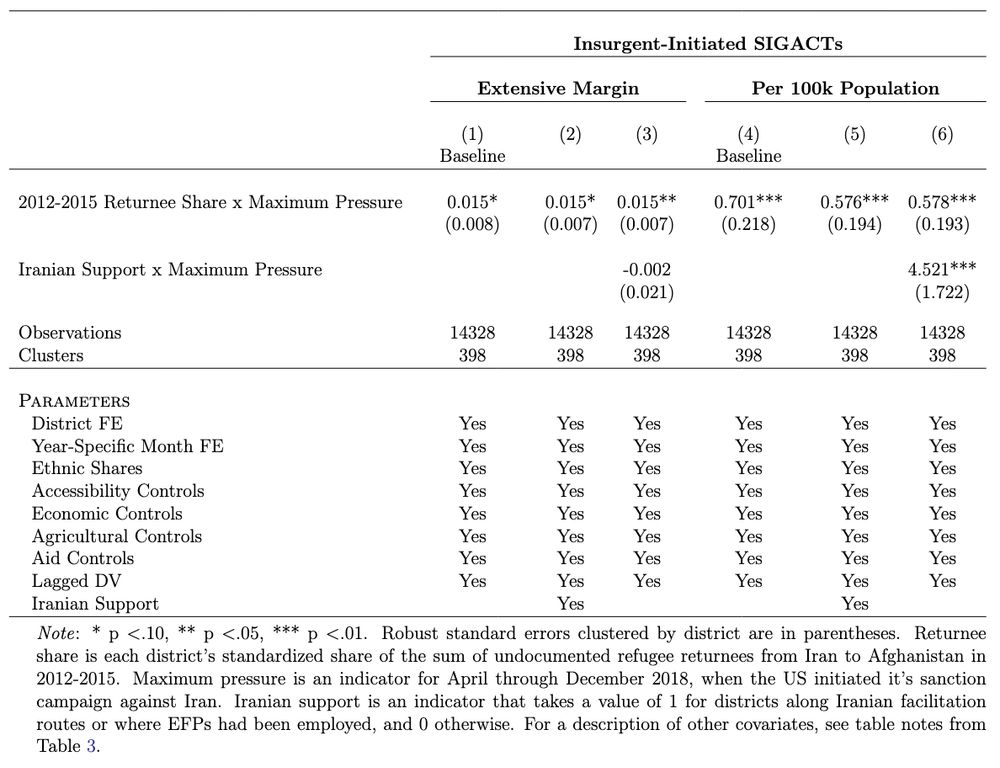
Iran may have retaliated against U.S. sanctions by ratcheting up support for militant factions in Afghanistan, hindering US efforts to negotiate a peace and withdraw.
But: tactical shifts are suggestive. Insurgents flush with recruits can pull off riskier and deadlier ops using labor-intensive tactics (e.g., complex attacks) that require large teams of perps to conduct.
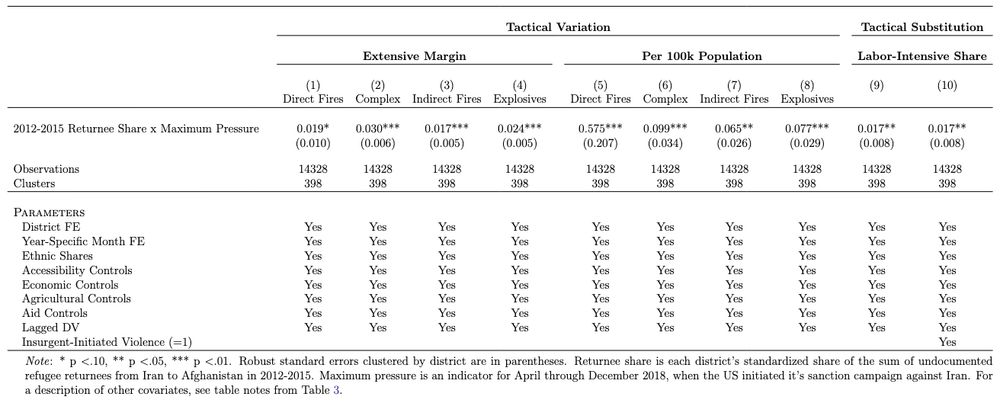
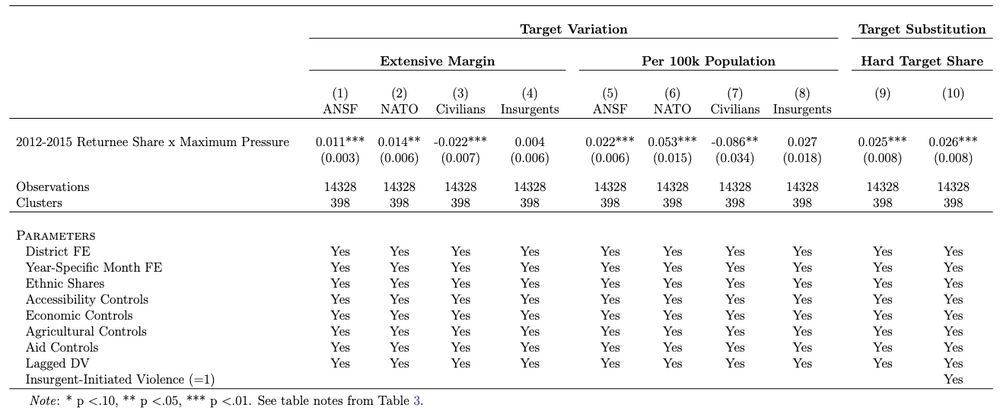
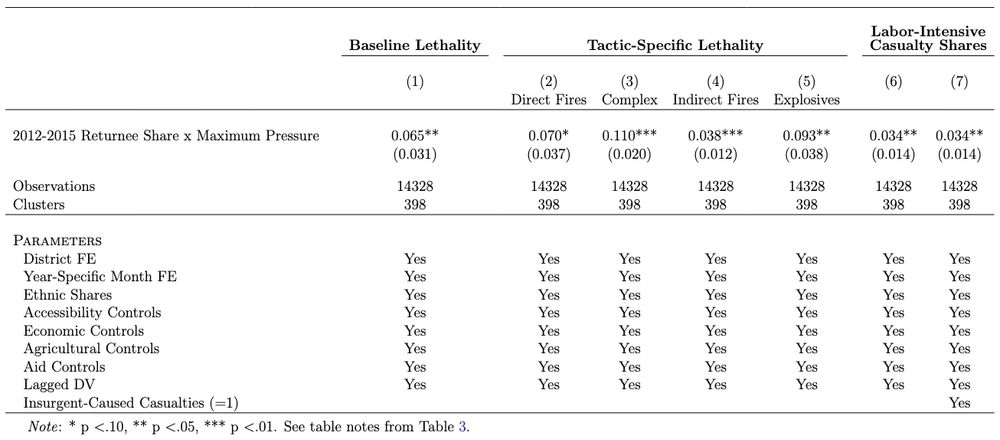
In returnee-receiving communities, there was ⬆️ unemployment, ⬇️ economic perceptions, and ⬇️ consumption (as measured by nighttime luminosity)
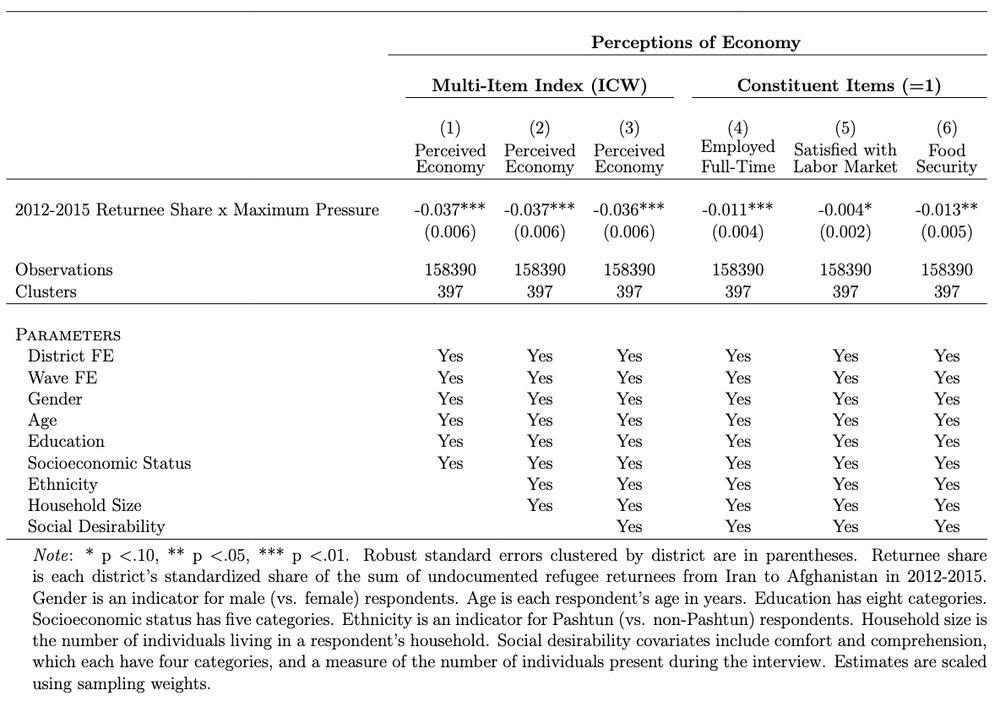
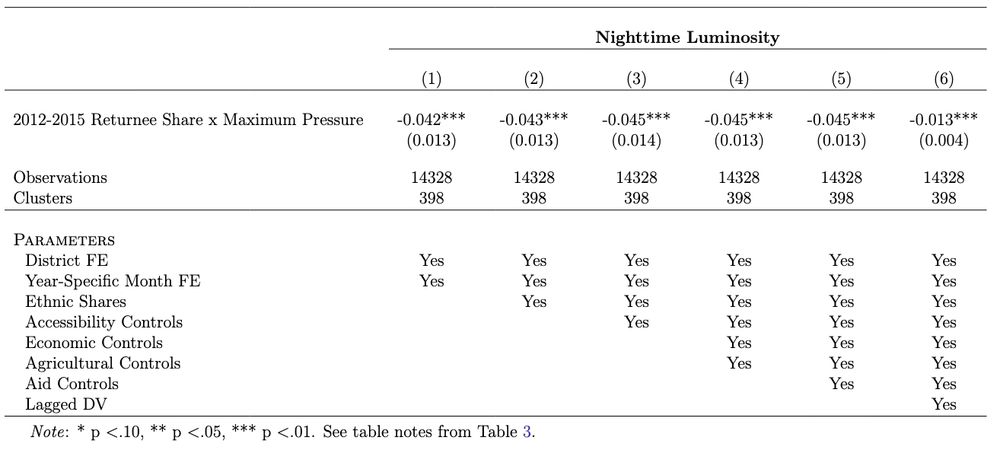

One explanation relates to a classical political economy account -- opportunity costs
The sanctions-induced economic collapse in Iran meant returnees and their non-migrant neighbors were impoverished and vulnerable to insurgent recruitment
